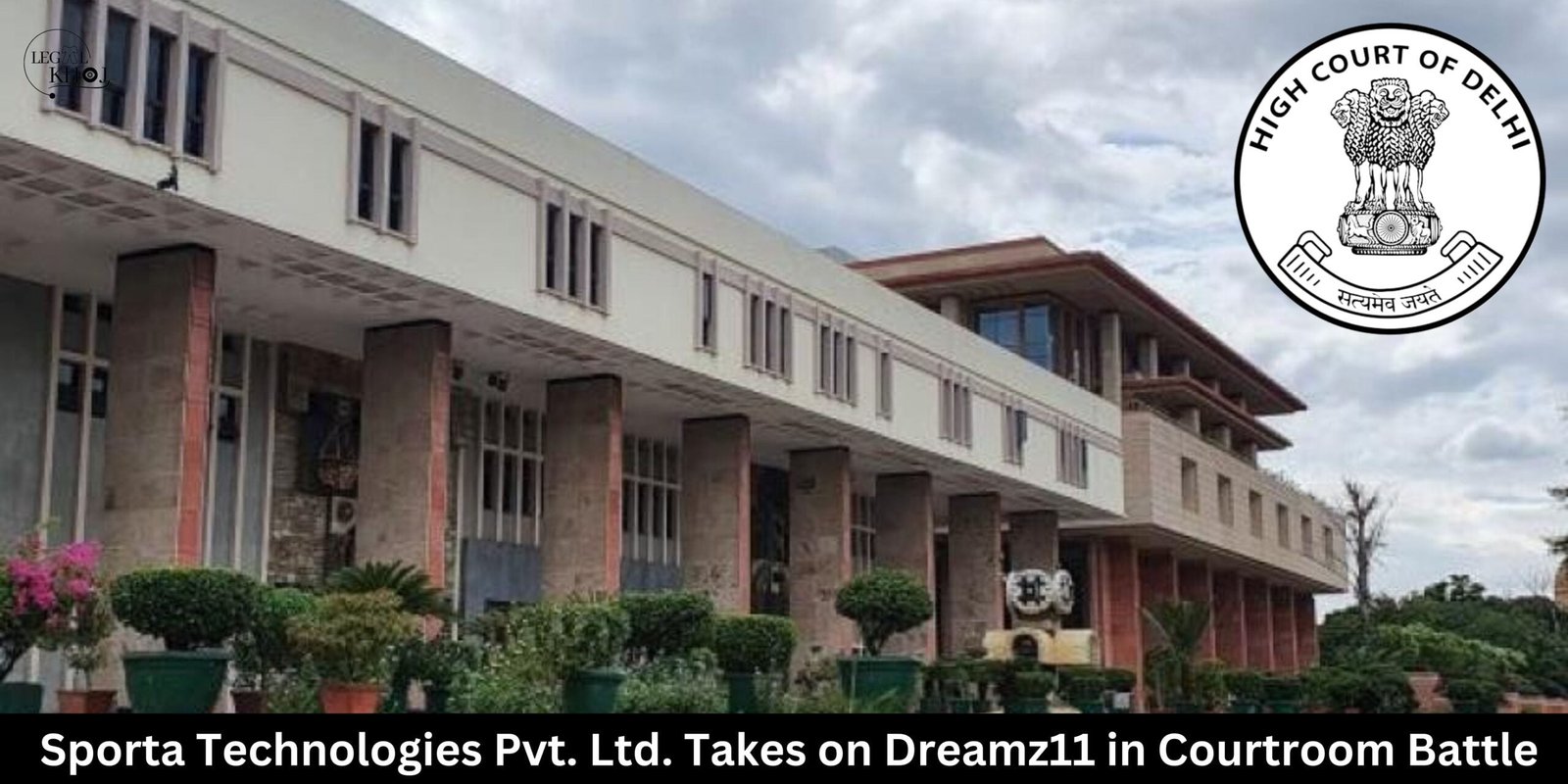The Delhi High Court recently issued a decisive and commanding ruling in the high-stakes legal battle between Dream11 and Dreamz11. In this legal showdown, the Delhi High Court has granted an irrevocable and far-reaching injunction in favor of Dream11, rendering a significant blow to the defendants. This resounding verdict effectively restrains the defendants, and anyone acting on their behalf, from exploiting the mark ‘dreamz11’ or any similar derivative thereof in various contexts, including as a trade mark, trade name, domain name, or even a component of their e-mail ID.
Background
The backdrop of this legal saga involves a fierce clash of trademarks. Dream11, the aggrieved party, is no stranger to the industry, holding trademark rights as the registered proprietors of ‘DREAM11.’ Their subsidiary, Plaintiff 1, is also a registered proprietor of the ‘Dream 11’ trademark. Furthermore, Dream11 operates the esteemed website www.dream11.com, which was established back in 2008. On the other side of the aisle, the defendants have been operating under the domain www.dreamz11.com.
The central argument of Dream11 revolves around the notion that ‘dreamz11’ is not merely a coincidental choice of name but rather a phonetically and deceptively calculated semblance to their well-established ‘dream11′ trademark. The complaint extends further, asserting that the defendants’ website and domain name were deliberately crafted to sow confusion among consumers, deliberately mirroring the layout and structure of Dream11’s website.
The legal fireworks continue as Dream11 alleges that the defendants’ online platform, which also caters to fantasy games, not only emulates the essence of their services but copies them extensively. The process of downloading games from the defendants’ website, Dream11 contends, is nothing short of an identical replica of their own process. To add fuel to the fire, Dream11 claims that the defendants have shamelessly appropriated their Facebook posts.
With their grievances made explicit, Dream11 initiated a legal offensive by serving a cease and desist notice to the defendants on November 3, 2022. However, the deafening silence that followed from the defendants suggested a refusal to comply with Dream11’s demands.
Analysis by Delhi High Court
The Delhi High Court , in its profound analysis and unwavering judgment, did not mince words in labeling this case as a clear instance of infringement and passing off by the defendants. The resonance of ‘www.dreamz11.com‘ with the plaintiff’s esteemed ‘www.dream11.com‘ was unmistakable, echoing an unmistakable phonetic harmony. Drawing from legal precedence, particularly the Re Pianotist Application (1906) 23 RPC 774, the Delhi High Court highlighted the inherent likelihood of confusion. Given that both parties cater to individuals seeking to engage in fantasy games, the virtually indistinguishable marks ‘dream11.com’ and ‘dreamz11.com,’ with the sole divergence being the mere letter ‘z,’ rendered confusion all but inevitable.
The Delhi High Court was unrelenting in its judgment, noting that this confusion was exacerbated by the defendants’ website’s deliberate mimicry of Dream11’s online sanctuary. The parallelism extended to the process of downloading apps from both platforms, with the step-by-step guides for availing services arranged in a strikingly similar fashion. In a testament to the audacity of the defendants, the Court did not overlook the blatant act of copying Dream11’s Facebook posts.
In light of these glaring similarities, and the indisputable fact that both parties offered identical services, the Delhi High Court wasted no time in invoking Section 29(2)(b) of the Trade Marks Act, 1999, deeming this a clear case of trademark infringement.
The Delhi High Court ‘s judgment resonated with a resounding call for the application of the ‘triple identity test.’ This test encompasses the trifecta of deceptively similar marks, a shared customer base, and the provision of services through internet websites from a common source. The Court had no qualms in declaring that the defendants had embarked on a conscious mission to emulate Dream11’s mark and adopt an uncannily identical veneer, all in an overt attempt to bewilder and redirect users to their own website. This unequivocally affirmed a case of passing off, running parallel to the trademark infringement.
Perhaps the most powerful point made by the Delhi High Court was the unassailable fact that Defendants 1 and 2 opted for a deafening silence, choosing not to mount a defense against the legal onslaught unleashed by Dream11. This conspicuous absence of a response was a damning indictment of their awareness that they had no substantive defense to offer. Leveraging the principle of non-traverse, the Court determined that the plaintiff’s averments remained unrebutted, and thus, by default, they were deemed to be admitted.
The Delhi High Court’s verdict came down like a mighty hammer, wielding the full force of justice. A permanent injunction was pronounced, casting a shadow of restraint over the defendants and anyone acting in concert with them. They were sternly prohibited from employing the mark ‘dreamz11’ or any closely resembling iteration, be it as a trade mark, trade name, domain name, e-mail ID component, or in any conceivable manner.
For Defendants 1 and 2, the judgment was particularly punitive, as they were expressly barred from using the domain name ‘dreamz11.com’ or maintaining the website www.dreamz11.com. Additionally, Defendant 3 was issued a direct and unequivocal order to desist from attempting to register the domain name ‘dreamz11.com.’
In a legal battle where each word carried immense weight, the Delhi High Court ‘s resolute decision served as an embodiment of justice, upholding the sanctity of trademark rights and the imperative need to protect against infringement and deceptive practices. The judgment’s uncompromising tone and legal authority sent a potent message to all, underscoring the repercussions for those who engage in deliberate trademark infringements and activities that lead to consumer confusion. It also underscored the importance of a swift and vigorous legal response when trademark infringements are identified, and the severe consequences for those who choose to remain silent and unresponsive in the face of legal action.









Leave a Reply